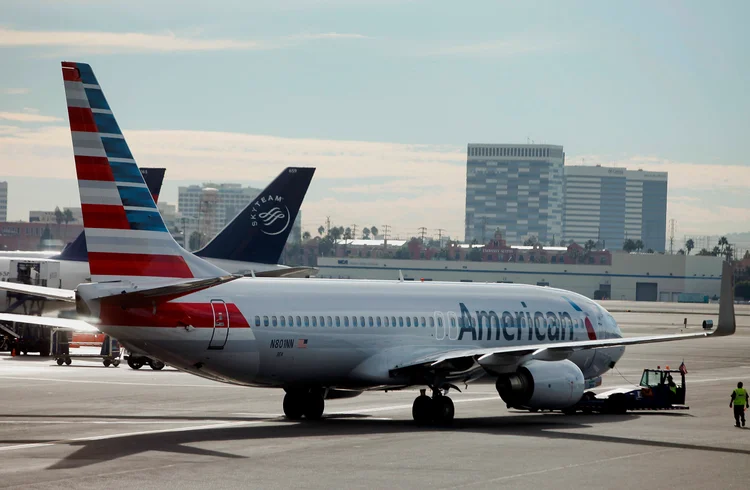The Surprising Strategy Behind Flight Compensation
The question of why airlines sometimes offer money to change flights can surprise many passengers, especially when they hear the offer in person at the airport or on an aircraft through the announcement system. Just as surprising can be the incentive offered, as it can reach hundreds or even thousands of dollars. Interestingly, these situations happen much more often than you might expect and are a consequence of a widely used and well-thought-out airline strategy.
Why Do Airlines Offer Money To Volunteers?
In short, it is all about risk management and mitigating losses. Most operators regularly overbook their flights, meaning they sell more tickets than there are seats available. It’s a strategy based on statistics to offset “no-shows.” The problem arises, however, when everyone shows up to the flight, and it needs to be solved fast. In such situations, airlines usually ask for volunteers to give up their seats in return for monetary compensation.
“These situations, although they may not seem to be the standard, happen more often than expected, and are usually resolved to the satisfaction of both sides.”
As reported by Andy’s Travel Blog, in 2021, a family of five was offered $4,500 per seat on a flight to Iceland after the airline was forced to find 30 volunteers.
More News: Home Prices Falling Across Texas
Understanding Overbooking: The Economics Behind It
Overbooking is a relatively common practice, as many passengers often do not show up for their flights. According to the FAA, 5% to 15% of passengers do not make it to their flights due to delays or changes in plans.
“The airlines can legally sell more tickets than they have seats available, but they are required to pay out compensation and provide alternative travel options to those who are affected.”
Airlines use revenue management tactics to maximize profits. If all goes to plan, they achieve optimal load factors and make more money. If not, they either raise compensation offers or involuntarily bump passengers.
Travel Demand and Load Factors
According to the Federal Reserve Bank of St. Louis, the average load factor in the USA has returned to pre-pandemic levels, and during last year’s holiday season, it peaked at even higher rates.
“For airlines, offering compensation is simply quicker, easier, and more convenient than delaying an entire flight and re-booking tickets.”
Airline Perspectives on Overbooking
Airlines argue that overbooking is a vital tool for maximizing load factor. Delta Air Lines is among the most generous in terms of compensation.
“One of the most memorable situations, as reported by Fortune at the time, was when the airline offered $10,000 to passengers willing to give up their seats on a flight from Grand Rapids to Minneapolis in 2022.”
Even low-cost carriers like Southwest Airlines oversell tickets, though they typically offer only the legally required minimum.
Compensation: What You Might Get
| Scenario | Compensation | Notes |
|---|---|---|
| Voluntary Bumping | Voucher or Cash | Delta has offered up to $10,000 in gift cards |
| Involuntary Denied Boarding | 2x–4x one-way fare (max $2,150) | Must be paid the same day, regulated by the DOT |
| Operational Delay/Cancellation | Varies | No U.S. minimum; EU up to €600 under EU261 |
| No Seat in Booked Class | Rebooking or Voucher | Downgrades possible, compensation can be requested |
How Scenarios Play Out: Voluntary vs Involuntary
Voluntary removals are negotiated and smooth. Passengers get compensation and are rebooked. Involuntary bumping, however, is strictly regulated.
“In the case of involuntary bumping, compensation is predetermined by the Department of Transportation (DOT).”
- 1–2 hour delay: 200% of ticket price, up to $1,075
- Over 2 hours: 400%, up to $2,150
These payments must be made within 24 hours.
Important Exceptions to Know
Not all denied boardings are compensable.
“Passengers will usually not be eligible for compensation if bumping is due to factors like aircraft changes, weight or balance issues, seat class downgrading, or if the flight was scheduled on a plane with fewer than 30 seats.”
Also, compensation is often in vouchers, not cash. Airlines may give Amazon gift cards, but usually offer flight credits.
You may also volunteer and not get bumped if seats later become available due to last-minute cancellations. Delays can stretch overnight, and you may be rebooked in a lower class than you originally paid for.
Compensation Breakdown (Delays)
| Domestic Delay | Compensation |
|---|---|
| 0 to 1 hour | No compensation |
| 1 to 2 hours | 200% of one-way fare (up to $1,075) |
| Over 2 hours | 400% of one-way fare (up to $2,150) |
| International Delay | Compensation |
|---|---|
| 0 to 1 hour | No compensation |
| 1 to 4 hours | 200% of one-way fare (up to $1,075) |
| Over 4 hours | 400% of one-way fare (up to $2,150) |
Despite fears, the DOT notes:
“Only 1 in 30,000 passengers are involuntarily bumped from a plane.”
Still, always get the terms in writing, especially for voucher-based offers.
Key Takeaways for Travelers
Airlines prefer voluntary denied boarding because it is cheaper, faster, and safer for their public image.
“For those who are flexible, this can be an easy way to make some money and come out on top.”
You can negotiate terms and ask for food, hotel, and transport if needed. Just volunteering doesn’t mean you’ll be bumped—and if you are involuntarily denied, strict selection rules must be followed.
With advanced booking systems, airlines are getting better at predicting attendance. But as long as planes are flying full, these offers will keep appearing.
“Stay well-informed and know your rights, in order to make the best of these situations.”



